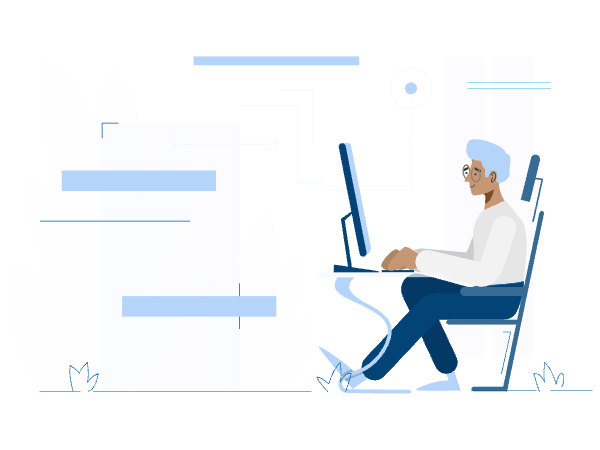Facing mounds of debt brings out the most painful emotions: fear, despair, anxiety. And when you’re stuck in the never-ending cycle of paying debt and living paycheck to paycheck, you’d do anything to get out, right?
That’s what debt settlement scammers are betting on.
Yes. It happens everyday. You get a call from someone who claims to be “on your side.” They promise they can settle all your debts—credit cards, personal loans, student loans, you name it—for a much lower amount than what you owe. They hate your debt as much as you do, and, for a small upfront fee, they’ll help you get out.
The only problem: it’s completely fake.
These debt settlement scammers are highly skilled con artists who can rake in millions with exaggerated promises. But truthfully—they all exhibit common characteristics. To help you distinguish between legitimate debt settlement companies and predators, here are five traits you should look out for.
1. They charge an upfront fee.
This is perhaps the clearest sign of a debt settlement scam: they ask you to pay for the service without having done anything.
Often, they’ll tell you these fees cover administrative or processing costs. Or they’ll say they’re putting your money in an “escrow account,” and you’ll eventually get it back. No matter what the reason, if they charge an upfront fee, don’t pay it. It’s illegal. According to legislation enforced by the Federal Trade Commision (FTC) in 2010, no debt settlement company can charge fees without having settled at least one of your debts. And, even then, most debt settlement companies will charge a percentage based on your debts, not a flat rate.
So if you’re asked to pay an upfront fee, do yourself a favor and hang up the phone, close the web browser, and never talk to that company again. Then, do everyone else a favor and report that company directly to the FTC.
2. They make big promises.
If it sounds too good to be true, then ten times out of ten: it is.
Again, debt settlement scammers know how to play with people’s emotions. They know that, to a rational person, a highly lucrative debt reduction offer (“we guarantee to reduce your debt by at least 50%!”) will look like a surefire scam. But to someone who is deep in debt, this kind of offer appears mystical, almost like a godsend.
Here’s the truth: no debt settlement company can promise to reduce your debt. No. Not a single one. They can tell you they’ll negotiate. They can tell you they’ve reduced other people’s debts. But they can’t guarantee to reduce your debt by a specific amount—by any amount.
Again, the FTC has made it pretty clear that debt settlement companies cannot legally promise they’ll make creditors forgive your debts. So if they do, don’t believe them. It’s a scam.
3. They tell you to stop talking to your creditors
If a debt settlement company tells you to cease all communication and payments with your creditors, then that’s another big red flag.
Often, these companies will put this in the context of a larger strategy. Stop talking to your creditors, they tell you, and your creditors will get scared. They’ll get so desperate to receive money, they’ll agree to the settlement offer.
This couldn’t be further from the truth. If you stop making minimum payments on credit cards and loans, you’ll rack up interest, penalties, and fees (not to mention damage your credit score). And if you refuse to respond to calls or messages from creditors, they could take legal action, garnishing your wages or placing a lien on your house.
4. The company has no web presence
Or, if they do have a web presence, it’s suspicious. Suspicious cues include having no physical address, no phone number, and webpages full of promissory language that makes outlandish guarantees.
Even if they have a seemingly legitimate website with contact information, you’d do well to search the company’s name on the Better Business Bureau (BBB), or even call your state attorney general office, to see if the company is reputable.
5. The terms of service aren’t transparent
Finally, if the debt settlement company doesn’t disclose fees, or the sales associates seem to be withholding information on the phone, that might be a sign they have ulterior motives. Scammers are often extremely hesitant to tell you everything about their companies (because, well, it’s a scam), and they’ll usually exhibit pushy behavior to change the conversation and get away from answering your questions.
Trust your gut. If you feel the sales associates are being too opaque, you have every right to walk away.
Don’t settle for a scam
Look, here’s the thing—getting out of debt isn’t easy. If a company calls you and promises an “overnight” solution, it’s a scam.
If you really want to get out of debt, and you don’t want to pay an enormous amount in interest and fees, you have better options. One is to consolidate all your debts into one affordable employee loan. With low interest, no fees, and a fair application process, it might sound too good to be true. But, unlike debt scams, it is true.
With an employee-linked loan, you make automatic repayments through payroll. And, since all your debts are combined into one, you’ll pay far less in interest than paying separate ARPs on individual debts. It’s one of the safest and most affordable ways to borrow money. Period.
Don’t give in to scammers’ false promises. Apply for a Stately loan, and we’ll help you become debt-free. Because that’s a promise worth keeping.



